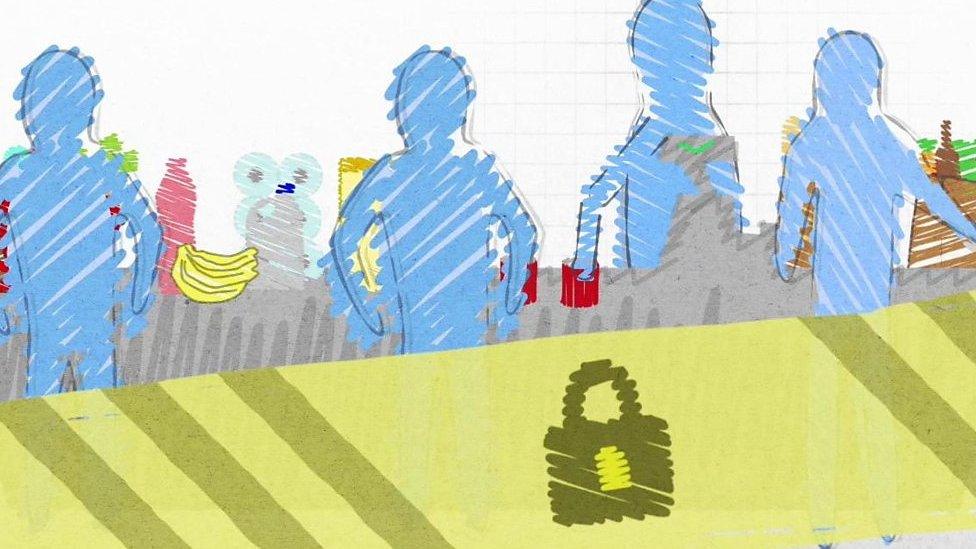Covid in Scotland: Poverty linked to higher risk of death from virus
- Published

People in the poorest areas are most likely to be severely ill with and die from Covid-19 than those in wealthier areas, a study has suggested.
Researchers looked at all of Scotland's critical care units and found patients from the most disadvantaged areas also had a higher chance of ICU admission.
It found that units in these areas were also more likely to be over capacity.
Academics considered the links between deprivation and severe Covid using anonymous health records.
Researchers from Glasgow and Edinburgh Universities also reviewed hospital data, to consider the impact of the pandemic on critical care units at all of Scotland's hospitals.
They compared ICU admissions across Scotland between March and June 2020.
Admissions were divided according to the Scottish Index of Multiple Deprivation, external, which splits Scotland up into almost 7,000 areas by standards including income, employability and health and ranks the areas.
Researchers found that of the 735 patients with Covid admitted to ICU, about a quarter were from the most deprived quintile compared with 13% from the least deprived quintile.
After 30 days, death rates were "significantly higher", researchers said, in patients from the most deprived places in Scotland, after accounting for other factors such as age and sex.
Hospitals in the most deprived health boards were also more likely to have higher peak in demand for intensive care beds, and to be operating over their normal capacity for longer.
The study's lead researcher, Dr Nazir Lone of Edinburgh University, said a number of factors could be driving the link between poverty and severe disease.
He added that poor housing, increased use of public transport and the financial pressure to continue working may be included.
Dr Lone, who also works at NHS Lothian, said: "The most deprived communities, and the hospitals that serve them, will need extra support as the pandemic continues."
Dr Joanne McPeake, co-author of the study from Glasgow University, said: "While we move through this pandemic, it is increasingly important to understand how this virus affects different groups in order for informed decisions to be taken on mitigating risks.
"This data will help inform how we support different communities in both the short and long-term, in order to adequately ensure that socioeconomic inequalities are not exacerbated further."
The study is published in The Lancet Regional Health - Europe, and was carried out in collaboration with the Scottish Intensive Care Society Audit Group.
- Published15 December 2020

- Published5 June 2020
